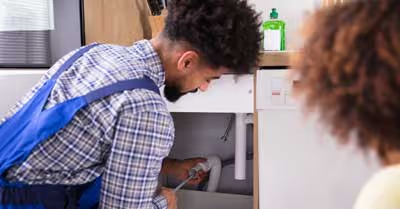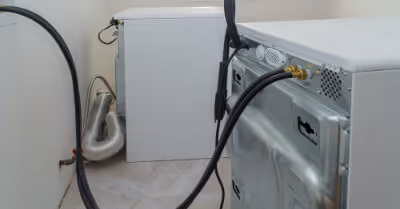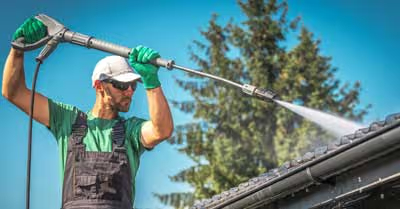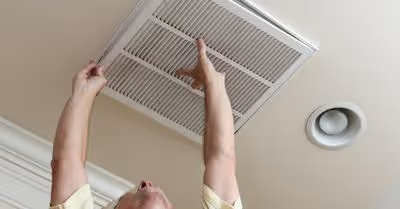Table of Contents
How Much Should You Save?
The amount you need to change obviously depends on the house you plan on purchasing. The down payment, home inspection, closing costs, and moving expenses all need to be considered.
Down Payment
The down payment is the largest of any of the amounts that you need to save for in order to buy a home. The recommendation is usually 20 percent of the purchase price. However, there are alternatives to putting this much down. In fact, you may be able to put as little as 3 percent down for some types of loans or even 0 percent down if you can qualify for a loan from the Department of Veterans Affairs.
Lower down payments do require tradeoffs. You will start off with less equity and you may have to pay extra for mortgage insurance or other fees. It is important that you consider all of your options before deciding whether or not to pay less down.
The Federal Housing Administration requires a down payment of at least 3.5 percent so it is important that you save at least this much. That is $3,500 for every $100k of the home purchase price.
Home Inspection
It is important to have a home inspection done and you should want to do so yourself because you are taking more risk buying the house than the seller. Sometimes the costs associated with the home inspection will be included in the closing costs, but other times you will have to pay for the inspection out of pocket.
You should expect to pay somewhere around $500 for a basic inspection and if you want to add additional services like pest or mold inspection then you may pay more. If the home is larger than average, that cost would increase even more.
Closing Costs
For homebuyers that do not do their homework, the closing costs can be an unpleasant surprise. They include things like property tax, homeowners insurance, title fees, and loan fees. The closing costs can vary a lot depending on the terms of your sale, the lender, and the location of the home.
You can expect to pay somewhere between 2 and 5 percent of the purchase price in closing costs. However, you may be able to negotiate with the seller so that they can pay for a portion of these costs.
Moving Costs
You will need to move your stuff into the house after you close and if you do not want to keep paying rent for your current home, then you will have to move everything. This may mean that you rent a truck and ask some friends or family members to help which can save a good amount of money. However, you will still need to pay for the truck rental and boxes among other things.
If you are moving locally, then you will only spend a few hundred dollars going with a truck rental. Some people prefer to have professional movers take the boxes to the house you purchased. This can save a lot of energy. I prefer this method because I can begin to unpack things I need while the movers are still unloading their truck This can save me time and energy that can be better used for someone else.
If you hire a professional moving crew then you will likely pay somewhere between $500 and $1000. You will pay twice that much or more if you have them pack your things as well. Furthermore, this is for local or nearby moves and you can add more for longer distance moves. If you are moving across the country it would be best to call and get an estimate.
How Much Savings Should You Spend?
It is never smart to empty your entire savings on a house. This will not leave you with money for repairs, renovations, or other unexpected costs. In addition, you will have to start your entire life savings over which can put you behind.
You should save enough money so that you do not have to use a single penny of your retirement savings. In addition, your emergency savings should remain at an amount that can cover around 6 months of living costs.
30 Day Rule to Save Money
This rule is simple and can really save you money. I tend to use this rule in a flexible way at all times to reduce my impulse spending. However, if you abide by the rule strictly, then you can save money for a home.
The rule is that you have to put any money that you were wanting to spend on an impulse buy into a separate savings account and leave it there for 30 days. Then, you are free to purchase the item after the 30 day period or you can choose to leave the money in the savings account.
This works because it allows us to see the things that are truly important to us and helps us avoid the things that aren’t. Furthermore, you will get more gratification out of the items that you still purchase after waiting 30 days.
It can be difficult especially at first, but when you get used to it then it will become almost automatic for you to think to yourself, “I will see if I still want this in 30 days.” Also, if you do end up breaking the rule, then it can be a good lesson because it is likely that the impulse buy will be something you do not actually need.
Keep a Spending Journal
This tip does not work for me for the simple fact that I cannot stick to it. However, I do know that it works well for some people. It is more about awareness of your spending habits than it is about keeping track of your finances (although you should keep track of your finances also!).
Write down every purchase that you make and the amount that you spent. Then, you can write additional information about each purchase. Write if the purchase was necessary or not, what your motivation for buying it was, and any other information that may help you learn about your spending habits. This can help you identify the things that you may be able to save money by avoiding like that expensive coffee drink at Starbucks or a large pizza on Friday night.
Reassess Debt
It is important to pay your debts regularly, but there are some things you can do so that you can save more money towards your home. What you can do will depend on your financial situation and how quickly you wish to buy a home.
You may be able to find a way to lower your monthly payments by using a credit card less or not at all. The interest fees on a credit card can be detrimental to your saving ability. If possible, you can pay off your credit card debt in a few months and free up that money to begin saving more afterwards.
This is also a good option because it can improve your credit score and your debt to income ratio which will make it more likely that you will get approved for a mortgage on a home that you want.
Downsize
Sure, nobody really wants to downsize. However, this can help you upsize in the long run into the home that you are able to buy with the money that you save. If you have an extra bedroom or office in your apartment or rental house, then you could significantly reduce your spending on rent by opting for a smaller place. Then, all of the unspent money can go directly into your home buying savings.
Alternatively, you can get a roommate. This is an easy way to make and save money. It could come out to hundreds of dollars a month. This can add a significant amount to your savings, but be sure to get a responsible and friendly roommate.
Reduce Unnecessary Spending
This is a big one. I have saved a solid amount of money just by avoiding some little things during my weekly routine. I am all in favor of doing enjoyable things, but sometimes we do not realize how much we are spending on entertainment, food and grocery delivery, and other things that we do not really need.
Entertainment is a big one whether you are buying movie tickets or purchasing new movies to stream at home, this can take a chunk out of your budget. If you have cable then you can downsize and nobody really needs to pay for Hulu, Netflix, and Disney+. Choose your favorite one and leave the others behind.
Do you have a gym membership? A lot of people have memberships that they do not even use. However, even if you do make an effort to go to the gym a few times each week, it can save you a lot of money to work out at home instead.
Most Americans eat out or have food delivered a lot, but if you are doing so more than once or twice every month, then you are missing out on savings that can go towards your house. Depending on the type of food, you could be spending $30 or even more on a meal for two.
Get a Side Hustle
This is a great way to make a little extra money. You can tutor online, babysit, or rent out a portion of your apartment. You can even sell some of your old things online or drive part time for Uber. You can even make a little money just by donating your plasma a couple times a month.
Recent Articles
















